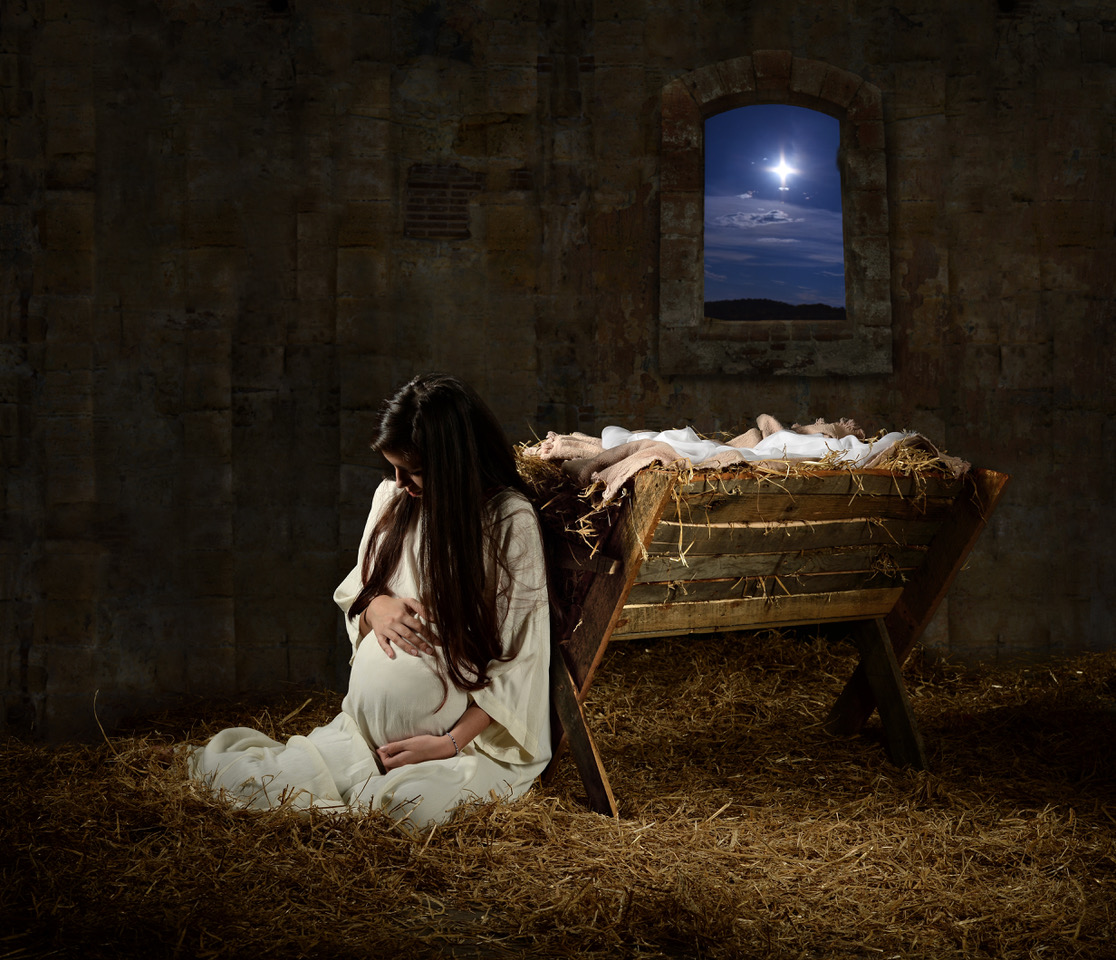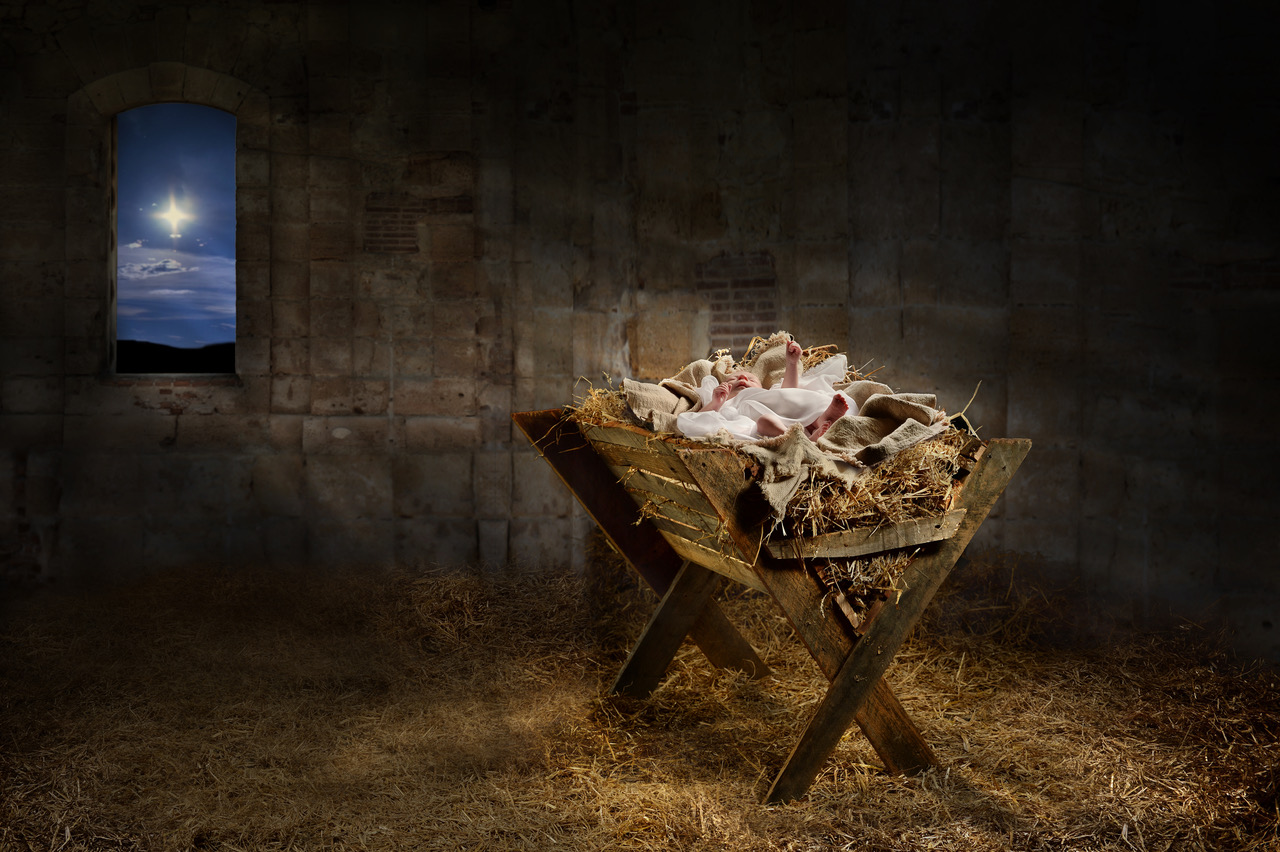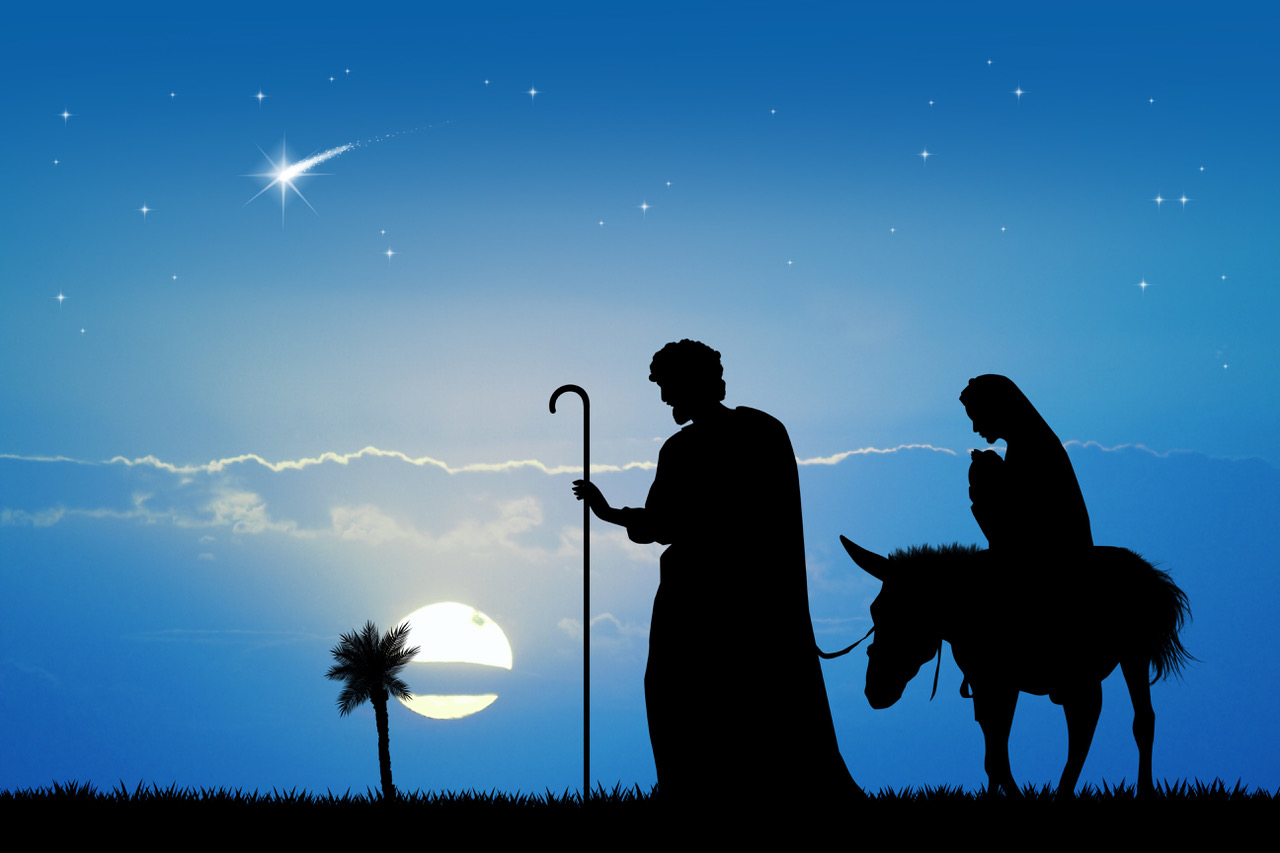filter posts:
Date
A Word for the Weary
 My column today was written by my wife, Cindy, as a message to the women of our church. She shared it with me, and I loved it so much I wanted to share it with you. With her permission, of course!
My column today was written by my wife, Cindy, as a message to the women of our church. She shared it with me, and I loved it so much I wanted to share it with you. With her permission, of course!
“The holiday season can be one of the most stressful times of the year. I sometimes feel that I bear the burden of the planning, organizing, shopping, baking, and decorating, as well as getting out our annual Christmas letter and trying to make sure our family gatherings are “special.” I honestly love so many things about this season, but it’s easy for me to lose sight of the meaning and the relationships when I’m just trying to get stuff done.
When my children were little, I wanted to make sure they knew the true message of the Christmas season. We used an Advent devotional, putting felt symbols about the birth of Jesus on a felt Christmas tree (this was before the time of the Jesse tree). We displayed nativity collections, made a birthday cake for Jesus, and taught our children about why He came, to save us by giving His life for us.
We gave to faithful ministries, put together Operation Christmas Child boxes, went caroling to neighbors and shut-ins. You name it, we did it. And I haven’t even told you about sugar cookies, fudge, making gifts, and other traditions.
I loved building memories through doing all those things, but sometimes this mama was exhausted by Christmas Day.
When the angel came to the shepherds, hard laborers with little to give them hope, he exclaimed, “Fear not, for behold, I bring you good news of great joy that will be for all the people. For unto you is born this day in the city of David a Savior, who is Christ the Lord.”
For all the people. Not just special people, rich people, or mamas who have their lives together. This is the best news that was ever given…for all of us! And the celebrations of this season are to help us remember the good news of great joy, that a Savior has been born…and the great joy of a Savior is for us all.
Don’t be discouraged Mama, Daughter, Friend. “Let not your hearts be troubled. Neither let them be afraid.”
In our own strength, we can’t change our souls, our cluttered minds, and even sometimes our busy lives, but we can lift our eyes to Jesus, and He can change them all. Look to Him and allow Him to remind us of the good news of His great joy that will be for all the people.
Dear Father,
We are prone to wander, and we lose sight of the good news and great gift that you’ve given us. May we turn our eyes to you and be reminded of how much you love us. May we experience your joy as we release our burdens in the power of your Holy Spirit who abides in us. With hearts of gratitude, amen.”
-Cindy Fox
From our household to yours, may the Lord bless you with His peace, and give you a very Happy New Year!
December 30, 2019
It’s Beginning to Look a Lot Like Christmas
 It’s beginning to look a lot like Christmas. Chestnuts roasting on an open fire. I’m dreaming of a white Christmas. I daresay every one of you can sing along with me on any of those tunes, and many more besides. They have become synonymous with the American Christmas experience. They help, some say, “get you in the Christmas spirit.” Along with eggnog and stockings and George Bailey and Charlie Brown.
It’s beginning to look a lot like Christmas. Chestnuts roasting on an open fire. I’m dreaming of a white Christmas. I daresay every one of you can sing along with me on any of those tunes, and many more besides. They have become synonymous with the American Christmas experience. They help, some say, “get you in the Christmas spirit.” Along with eggnog and stockings and George Bailey and Charlie Brown.
I love those American Christmas traditions. And they can have a place in our celebrations, I think. But like the cattle in the Bethlehem stable, they simply become window dressing or background scenes to the real story. Because Christmas is not Christmas without Christ. This is the season in which the whole world, even many who do not believe, celebrate the birth of Jesus Christ. You can try to bury the truth in a mountain of gift wrap and candy canes, but facts are stubborn things.
Imagine at your next birthday party, all of your friends gather to celebrate. But instead of bringing you gifts and singing Happy Birthday to you, instead of eating cake and ice cream, the celebration is wildly different. One stands and sings a happy little song about the stork that “brings presents to all.” Another gives a thirty-minute lecture about cabbage, complete with pictures and props. Then everybody eats and drinks until they cannot move. There is not a single word about you and your birth. Not a single story about how your life has impacted another. No gifts, no cards, nothing about you at all. It was your birthday, but you were not even mentioned the whole evening. Could that really be called your “birthday party?”
If I told you I had shared meals with Buddy Greene, and we exchange Christmas cards, that would not mean anything to most of you. But if I started singing, “Mary, Did You Know?” you would probably be able to sing along with me. Mark Lowry wrote the words and gave them to Buddy, who is a Christian singer and songwriter living in Nashville, and Buddy wrote the music the next day. The song has been recorded by dozens of artists. I believe this song captures, much better than “Rocking Around the Christmas Tree,” what we celebrate as followers of the Lord Jesus.
Mary did you know that your baby boy would some day walk on water?
Mary did you know that your baby boy would save our sons and daughters?
Did you know that your baby boy has come to make you new?
This child that you’ve delivered, will soon deliver you.
Mary did you know that your baby boy would give sight to a blind man?
Mary did you know that your baby boy would calm a storm with his hand?
Did you know that your baby boy has walked where angels trod?
And when your kiss your little baby, you have kissed the face of God.
Oh Mary did you know—
The blind will see, the deaf will hear, the dead will live again.
The lame will leap, the dumb will speak, the praises of the lamb—.
Mary did you know that your baby boy is Lord of all creation?
Mary did you know that your baby boy would one day rule the nations?
Did you know that your baby boy is heaven’s perfect Lamb?
This sleeping child you’re holding is the great–I— AM—.
Ahhh. Now that is a song that celebrates the real deal. So, without apologies at all to those who wish we Christians would just stuff ourselves with turkey and keep Christ out of it…I wish you all a very merry, Christ-centered, Christmas.
December 23, 2019
A Joyful Heart for Christmas
“My soul magnifies the Lord, and my spirit rejoices in God my Savior, for he has looked on the humble estate of his servant…for he who is mighty has done great things for me, and holy is his name.” Luke 1:46-49
This passage is part of Mary’s “Magnificat,” her song of praise in response to the gift of her son, the Messiah.
It is similar to Hannah’s song in 1 Samuel 2:1-10 – “My heart exults in the Lord…I rejoice in your salvation. There is none holy like the Lord; for there is none besides you; there is no rock like our God.”
Hannah offers praise to God for the gift of her son, whom she gave back to the Lord to serve Him, a foreshadowing, perhaps, of Mary’s experience.
Mary and Hannah were young women. There is no indication that they were special in any visible way, but they both knew their “humble estate” before the Lord.
They rejoiced in God their Savior, because He had done great things for them. They rejoiced, not because of their circumstances: Hannah had been barren and not able to have children, and Mary was unmarried, but with child, and was about to be severely persecuted. They rejoiced over the blessing of life and that God had found favor with them.
After 400 years of silence from God, He sent an angel to bring good news to a young girl. God remembered His covenant.
Our rejoicing doesn’t rest on our circumstances. Let us not put our hope and expectation in the glitter, gifts, and experiences of Christmas.
In this Advent season, as we anticipate the celebration of the coming of the Messiah and His “good news of great joy,” let us remember our humble estate and the great things that God has done for us. “My soul magnifies the Lord, and my spirit rejoices in God my Savior!”
Lord, thank you for giving us the gift of your salvation and coming to us in our humble estate. May our souls magnify you and our spirits rejoice in you during this time of anticipation and celebration. You who are mighty have done great things, and holy is your name! Amen
December 18, 2019
The World Changed Forever That Night
 It was the night of nights. There was an appearance like none the world had ever seen. There was an announcement like none the world had ever heard. There was adulation like none the world had ever experienced. And the world was forever changed.
It was the night of nights. There was an appearance like none the world had ever seen. There was an announcement like none the world had ever heard. There was adulation like none the world had ever experienced. And the world was forever changed.
The shepherds were watching their flocks that night. That’s all. Just a normal night for a shepherd. Maybe they were glad to have sheep to watch. Maybe they were wishing they had something else to do for a living that wasn’t so cold and didn’t smell like sheep. It was quiet. And dark. Then everything changed in an instant as the sky lit up when an angel of the Lord appeared. The angel was not there. Then he was. It wasn’t like the shepherds looked way off in the distance and saw a dim light moving in their direction. Like one turned to the other and said, “Hey, Levi. What’s that coming yonder?” Levi answered, “Don’t know, Jake. But it’s headin’ this way, and I ain’t never seen nothing like it.” No. They didn’t see the angel approaching. There was no warning whatsoever. The angel was on them in an instant. And, “The glory of the Lord shone around them, and they were filled with great fear.” The shepherds were not slightly amused. Or curious. Or mildly irritated. They were terrified. The pictures that men have painted of this scene over the years are almost comical. They often portray the shepherds as rough-hewn burly men, and the angels as delicate women with curls and rosy cheeks and wings. The paintings often make you wonder, who was afraid of whom? The paintings make you think the shepherds should be saying to the angel, “Don’t be afraid little lady. Us big ol’ shepherds won’t hurt you. Come on down here and don’t be shy. You can talk to strangers. It’s Ok.” No! The angel was awesome and the shepherds were terrified, but the amazing thing is that God would choose these blue collar guys to be the first witnesses of the most glorious sight the world had ever known. This was the night of nights and the appearance of an angel changed everything. Because he came with news.
The angel said, “Do not fear, for I bring you good news of great joy!” Do you see that? It is the good news that is not only the answer to all of our fears but is the source of all our joy. All our fears, gone. All our joy, now here. Who? Where? The angel answers their questions before the shepherds can ask. “For unto you is born this day in the city of David a Savior, who is Christ the Lord.” The one who is born in Bethlehem that night was Savior and Christ. You could say that is what Jesus came to do on earth: to save us from our sins as the Christ, the Anointed One, the perfect sacrifice. But he came from heaven as Lord. The angel might as well have said, “That’s who he is. He is Lord! He made you. He made everything you see and everything you cannot see. He is both the agent for creation and the all-sufficient agent for your redemption. The only hope for mankind is found in this baby born in a manger.”
And with that, the one angel was joined by a battalion of angels, and they all began to praise God. It was adulation like none the world had ever experienced, as these angels joined the chorus, exalting God for this night of nights, when the plan of salvation was revealed to a few lowly shepherds on a Judean hillside.
Here we are today. Still celebrating that first Christmas, when Jesus came as Savior, Christ, and Lord, and we were given all we would ever need.
December 16, 2019
The Bible Said it First
 I had to smile as I was driving to work one day and heard the news report on the radio. “Mom’s milk is best!” the announcer declared. The report outlined the benefits of breastfeeding as though the Holy Grail or the Ark of the Covenant had just been discovered. Breastfeeding reduces babies’ risk of health problems in dozens of areas, including type one and two diabetes, obesity, ear infections, and even childhood leukemia. It reduces health problems for mothers as well, reducing their likelihood of breast cancer, ovarian cancer, and post-partum depression. It saves a typical family somewhere between $1100 and $3900 in the first year, depending on the brand of formula they would have used. Janice Riordan, Associate Professor of Nursing at Wichita State University said, “(Breastfeeding leads to) $1.3 billion potential savings in health care costs using only 4 medical diagnoses. Breastfeeding also improves intellectual development of children according to new medical research studies. The benefits of more intelligent children on society is enormous even though it cannot be directly measured in terms of dollars. Finally, it was calculated that if WIC mothers breastfeed, yearly cost savings for basic food packages would be $2,665,715.”
I had to smile as I was driving to work one day and heard the news report on the radio. “Mom’s milk is best!” the announcer declared. The report outlined the benefits of breastfeeding as though the Holy Grail or the Ark of the Covenant had just been discovered. Breastfeeding reduces babies’ risk of health problems in dozens of areas, including type one and two diabetes, obesity, ear infections, and even childhood leukemia. It reduces health problems for mothers as well, reducing their likelihood of breast cancer, ovarian cancer, and post-partum depression. It saves a typical family somewhere between $1100 and $3900 in the first year, depending on the brand of formula they would have used. Janice Riordan, Associate Professor of Nursing at Wichita State University said, “(Breastfeeding leads to) $1.3 billion potential savings in health care costs using only 4 medical diagnoses. Breastfeeding also improves intellectual development of children according to new medical research studies. The benefits of more intelligent children on society is enormous even though it cannot be directly measured in terms of dollars. Finally, it was calculated that if WIC mothers breastfeed, yearly cost savings for basic food packages would be $2,665,715.”
I was smiling as I heard this because it is the same old story. What the Bible has said all along is finally being “proven” by the world. Moses was found by the Pharaoh’s daughter in the bulrushes, and his sister, who was watching the whole thing unfold, offered to get a Hebrew woman to nurse the child. The Pharaoh’s daughter said, “Oh, that’s OK. I will just feed him a bottle of cow’s milk every two or three hours and he will be fine. Gee, I hope he’s not lactose intolerant. Soy formula has not been invented yet.” No, the Pharaoh’s daughter gladly accepted, and Moses was taken to his mother who was ready to nurse her son and love him until she had to hand him over to another. By the way, read Exodus 2 to get the whole story about why Moses had to be put in a basket and dropped in the river to save his life. It’s a page-turner.
So, breastfeeding is a good idea, the world says. The Bible said it first. It was God’s design; still is. In 1992, Time magazine featured a front cover that pictured a little boy and girl. The boy is flexing his bicep, looking proudly at it, while the little girl crosses her arms and looks on with what some might describe as smugness, even a smirk. But the headline and sub-title was what caught my attention. Right under the boy’s flexing arm, it reads, “Why Are Men and Women Different?” Then under that: “It isn’t just upbringing. New studies show they are born that way.” You think?
As a happily married man, count me in the number who celebrates the fact that my wife was made different. In fact, you can go all the way back to the beginning of the Bible and see that God designed men and women to be different so that they could become one and make a third. And a fourth. And so on. I speak as Captain Obvious when I say, “It just doesn’t work any other way.” God’s design is perfect. The Bible said it first.
Why doesn’t the world catch on to the fact that the Bible has the answers? Here’s a clue: “The fear of the Lord is the beginning of knowledge, but fools despise wisdom and instruction.”
The Bible said it first. Try it for yourself, if you dare.
December 9, 2019
There Is Great Joy in Anticipation
 There is little that compares with the joy of anticipation. It is almost as much fun as when that thing you are hoping for finally arrives. Remember when you were little and Christmas was three weeks away, like it is now? All of us probably have a story to tell about things we did as children to try and make the days go by faster. Especially on Christmas Eve. My two brothers and I would sleep in the same bed that night when we were little, which was a miracle pretty close to the parting of the Red Sea. On any other night of the year, the three of us in the same bed would have ended with a trip to the emergency room. I shudder thinking about the BB gun fights we used to have. I shake my head at the memories of sticking straight pins through spit wads and shooting them at each other with rubber bands. We were three rambunctious boys who lived to torment each other 364 days a year, but on Christmas Eve we were transformed into cherubs whose excitement for Christmas day healed all wounds and buried all hatchets.
There is little that compares with the joy of anticipation. It is almost as much fun as when that thing you are hoping for finally arrives. Remember when you were little and Christmas was three weeks away, like it is now? All of us probably have a story to tell about things we did as children to try and make the days go by faster. Especially on Christmas Eve. My two brothers and I would sleep in the same bed that night when we were little, which was a miracle pretty close to the parting of the Red Sea. On any other night of the year, the three of us in the same bed would have ended with a trip to the emergency room. I shudder thinking about the BB gun fights we used to have. I shake my head at the memories of sticking straight pins through spit wads and shooting them at each other with rubber bands. We were three rambunctious boys who lived to torment each other 364 days a year, but on Christmas Eve we were transformed into cherubs whose excitement for Christmas day healed all wounds and buried all hatchets.
We would lie there “bug-eyed” as Mom used to say, and talk about what we hoped to get for Christmas. Sometimes we were tipped off when we heard the present arrive, like the year Dad gave us a mini-bike and we heard him roll it through the front door and into the living room on Christmas Eve night. We were hyped-up on pure adrenalin, imagining the fun of riding our new mini-bike in the back yard on Christmas Day. It took every ounce of our collective willpower to keep from sneaking downstairs in the middle of the night to see this new treasure. It is a good thing we did not go down to look. Looking leads to sitting leads to cranking leads to riding. Through the living room. Thankfully, we waited until the sun was thinking about rising. And though that was hard, the waiting increased the anticipation of the joy that would be ours when we finally saw the gift.
That is in part what we celebrate during this time of the year: the joy that is ours in Christ, the greatest gift the world has ever received. We celebrate his first coming to us, and we look forward to his return.
The joy of anticipation only works if you have two ingredients present: One, you are looking forward to something that you really want with all your heart and…Two, there is every assurance that what you are looking for will come.
Read the Old Testament prophecies about the coming of the Messiah. They were promises given by God to His people that produce the joy of anticipation. The very first prophecy was spoken by God in the Garden of Eden when he said the seed of the woman would bruise the serpent’s head, speaking of the Savior who would destroy the devil and his works. Isaiah told us Jesus would be born of a virgin. Micah told us Jesus would be born in Bethlehem. Hosea told us he would live for a time in Egypt. Many authors told us he would be rejected by His own people. Zechariah told us he would be betrayed for thirty pieces of silver. Every promise made by God about the first advent came true. That means every promise about the second advent will come true as well.
Think of it this way. Which one of these is most accurate to real life as we know it? “Life is a tale told by an idiot, full of sound and fury, signifying nothing.” That’s Macbeth. Or, “And they lived happily ever after.” That’s Cinderella, among other fairy tales. It is Cinderella that most clearly describes life for a Christian! I believe the reason fairy tales often end with, “And they lived happily ever after” is because there is a longing for that in all of our hearts. It is baked into our DNA, put there by God. Solomon got a glimpse of this and wrote about it as an old man: “He has made everything beautiful in its time. Also, he has put eternity into man’s heart, yet so that he cannot find out what God has done from the beginning and the end.” Some of the mystery that was unknown to Solomon in the Old Testament has been revealed to us in the New, including the truth that we will live happily ever after with God. Not here, not in this life, but in the one to come. There is a prince, the Prince of Peace, and there is a beautiful bride, the church, and we know just enough about the last Day, when Jesus will return for his bride, to know that there will be perfect transformation and eternal celebration for those who belong to him.
Three weeks and change to go and it will be Christmas day. I am excited already, as many of you are. But our rejoicing is already complete in the One of whom the angels said, “For there is born to you this day in the city of David a Savior, who is Christ the Lord.”
December 2, 2019
I Cannot Wait for This Change
 Every now and then someone sends me some church humor. This one can be found online and includes more examples, sure to ruffle the feathers of almost every person out there. I just picked out a few of my favorites and included my own church in this mix, which is nondenominational.
Every now and then someone sends me some church humor. This one can be found online and includes more examples, sure to ruffle the feathers of almost every person out there. I just picked out a few of my favorites and included my own church in this mix, which is nondenominational.
How many Charismatics does it take to change a light bulb?
Five. One to change the bulb and four to bind the spirit of darkness in the room.
How many TV evangelists does it take?
One. But for the message of light to continue, send in your donation today.
How many independent Baptists does it take?
Only one because any more would be compromise and the standards of light would surely slip.
How many Unitarians does it take?
At least ten, as they need to hold a debate on whether or not the light bulb exists. Even if they can agree upon the existence of the light bulb, they still may not change it to keep from alienating those who might use other forms of light.
How many Southern Baptists does it take?
CHANGE??
-Or-
At least 15. One to change the light bulb, and three committees to approve the change and decide who brings the potato salad.
How many UCC members does it take…?
We choose not to make a statement either in favor of or against the need for a light bulb. However, if in your own journey, you have found that a light bulb works for you, that is fine. You are invited to write a poem or compose a modern dance about your personal relationship to your light bulb and present it next month at our annual light bulb Sunday service, in which we will explore a number of light bulb traditions, including incandescent, fluorescent, three-way, long-life, and tinted, all of which are equally valid paths to luminescence.
How many nondenominational members does it take…?
We do not change light bulbs. We simply read out the instructions and pray the light bulb will decide to change itself.
The truth is, change is part of life and it is part of death, as well. As I preach through the “resurrection chapter” of the Bible, 1 Corinthians 15, I am reminded of the great change that is coming for those who know Jesus Christ as Savior and Lord. Paul writes, “I tell you this, brothers (and sisters): flesh and blood cannot inherit the kingdom of God, nor does the perishable inherit the imperishable. Behold! I tell you a mystery. We shall not all sleep, but we shall all be changed, in a moment, in the twinkling of an eye, at the last trumpet. For the trumpet will sound, and the dead will be raised imperishable, and we shall be changed.”
I heard about a church that put a sign on the nursery that said, “We shall not all sleep, but we shall all be changed!” Clever. The good news is that when Christ returns for his own, some will still be alive, but most will already have died. All of them will be changed in a moment. Each will be clothed with an eternal body that will never suffer pain or disease, never grow weary, never wear out, and never die. The natural body will be exchanged for a supernatural body. The perishable will be replaced by the imperishable. And then we truly will live happily ever after. It is not a fairy tale. It is the truth of the Gospel.
Some changes are very hard, but that change, the one that happens when Jesus returns for those who belong to him? I cannot wait.
November 25, 2019
Make Your Soul Hungry by Feeding Your Soul
 David said to God, “Early will I seek You.” That word can mean early in the day or it can mean early at a task. It can also mean ‘with earnest desire.’ Back in the day when there were children living in my house, if I called upstairs early in the morning with, “Hey, someone dropped off a gift for you during the night!” they would respond in a way that would satisfy both definitions of that word. My children would bound down the steps early and eagerly. The truth is, God says this every day to his people. He whispers into our souls, “Come into the family room with your Bible and listen to me as you read and see what treasures I have prepared for you.” Sadly, many just grunt, turn over on their sheets, and chase a fitful sleep again.
David said to God, “Early will I seek You.” That word can mean early in the day or it can mean early at a task. It can also mean ‘with earnest desire.’ Back in the day when there were children living in my house, if I called upstairs early in the morning with, “Hey, someone dropped off a gift for you during the night!” they would respond in a way that would satisfy both definitions of that word. My children would bound down the steps early and eagerly. The truth is, God says this every day to his people. He whispers into our souls, “Come into the family room with your Bible and listen to me as you read and see what treasures I have prepared for you.” Sadly, many just grunt, turn over on their sheets, and chase a fitful sleep again.
Not David. He said to God, “You are what my soul thirsts for and my flesh longs for.” Some of you men reading this will remember what it was like when you first fell in love with your wife. Your soul thirsted and your flesh longed. You could not wait to be with her, and every minute you were apart seemed like an eternity. We understand that when it comes to loving a person, but can we really learn to love God that way? Yes. In fact, it should be the normal state of the Christian, not the wild-eyed fanatical exception. Ok, you ask, how do I get there? Well, it starts with the obvious: you come to the Father only through the Son. You must have a saving knowledge of Jesus Christ. But Christians can dry up, too. How can we stay passionate for God?
David wrote, “So I have looked for you in the sanctuary.” David penned this Psalm in the wilderness, and to get his heart into worship mode, he remembered the times he’d enjoyed with his fellow believers in the sanctuary. Don’t get hung up on ‘sanctuary.’ A church can meet under a banyan tree, like some churches in Africa I have preached to, or in the most well-appointed auditorium. The point is not the edifice but the edification, the building up of the people of God, not the building. The aim is the glory given to God when his people come together in his name and hear his Word preached.
Why do we need to be together like this every Sunday? Because when we are in the wilderness, and sometimes we get there by the first coffee break on Monday morning, we need to be able to say, “O God, I remember what you spoke into my heart yesterday in the sermon; O God, I need to praise you now like I praised you in the sanctuary yesterday.” Why is our corporate worship so important? Because it is there every Sunday that we go hard after God as we look for him in the Word and we look at him in the songs and our hearts are trained to trust him and to praise him and to be satisfied in him alone. My dear readers who say, “I don’t need the church,” either do not know what the Bible plainly teaches on this or have rejected it altogether. If you do not long for these times together with the local church on Sundays, then I would exhort you with the authority of God’s Word that you are in danger of your soul drying up altogether. You may not be thirsty because you are beyond dehydration. You may not be hungry because you are beyond starvation. Those who stop eating eventually don’t want to eat and indeed, cannot eat.
Make your soul hungry by feeding your soul.
November 18, 2019
By Christianity, We See Everything Else
 A few years ago, I encouraged some young people in a writing class to send letters to the editor, and gave them free range on topics. On the day they were all published, the editor included a note on the page indicating these were students in a class I taught. A week later, a woman wrote this to the Times-News: “Rev. Fox usually stays away from politics and writes about religion.”
A few years ago, I encouraged some young people in a writing class to send letters to the editor, and gave them free range on topics. On the day they were all published, the editor included a note on the page indicating these were students in a class I taught. A week later, a woman wrote this to the Times-News: “Rev. Fox usually stays away from politics and writes about religion.”
There are at least three things wrong with that statement. The first bone I have to pick is with the title, “Rev. Fox.” I never use that title in correspondence. Most of the adults who know me call me Mark. A few call me Pastor Fox. Mrs. Johnson, the widow who used to live across the street when we were in Graham called me “Preacher Fox.” She would call often and ask me if I could come over and help her with something. One time she called because her TV wasn’t working, and when I got there she looked at me with sad old puppy dog eyes and said, “Preacher Fox, I can’t get my TV to come on, and you know I need to see my stories.” I told her not to worry and started trying to diagnose the problem as she walked into the kitchen and opened the fridge. “Mrs. Johnson, come in here and I will show you what I found,” I said, after looking behind the TV. As she walked in, I held up the cord which had been unplugged and left lying on the floor. “Here’s your problem,” I said, looking into her eyes and watching her try not to smile as she said, “Oh, is that what it was? My goodness! Well, come into the kitchen and set a while. I poured us a Coke.” The thought of that dear lady, who was not petite by any stretch, crawling under that TV to unplug it so that she could have some company that morning still makes me smile, and a little sad, too. Back to the point. Widows sometimes call me Preacher Fox. My mom calls me her sweet boy. My kids call me Dad. My grandchildren call me Grandad. Only those who write letters to the newspaper to take me to task call me Rev. Fox. I am always a pastor, though not always a good one, but I never want to be known as Rev. Fox.
The second problem I have with the letter is more serious. Despite the obvious point that I actually wrote none of the letters, the dear lady said I usually write about religion. I don’t. “Religion” refers to every system of belief about a “higher power” in which the adherents to that belief try to “bind themselves” to the god whom they believe will somehow be impressed by their good deeds. That definition would cover every known man-made system of religion, but not Christianity. I write about Jesus Christ who is equal with God, came to earth as a man, was born of a virgin, lived a sinless life, took our sins upon Himself on the cross, and rose from the dead so that we, who have done absolutely nothing to impress God and never could, would by grace and through faith cross over from darkness to light, from death to life, and will one day live in eternity with God the Father and Jesus the Son.
The third problem I see is the idea that we “reverends” need to stick to religion. C.S. Lewis said, “I believe in Christianity like I believe in the sun, not only because I see it, but by it, I see everything else.” This is precisely why the followers of Jesus need to speak and write and teach from a biblical worldview on every single subject under the sun. It doesn’t mean that we know more than anyone else.
But we know the One who does.
November 11, 2019
This Is Our Logical Faith
 I have always loved Paul’s logical argument for the physical resurrection of Jesus Christ, and I preached on it last week as we are working our way through 1 Corinthians. Was Jesus bodily raised from the dead? It is not an optional question you can choose to ignore. As Tim Keller says, the resurrection of Christ is “the hinge upon which the story of the world pivots.” Paul would agree, and he starts his argument with a question to the church then, and to the world now: “How can some of you say that there is no resurrection of the dead?”
I have always loved Paul’s logical argument for the physical resurrection of Jesus Christ, and I preached on it last week as we are working our way through 1 Corinthians. Was Jesus bodily raised from the dead? It is not an optional question you can choose to ignore. As Tim Keller says, the resurrection of Christ is “the hinge upon which the story of the world pivots.” Paul would agree, and he starts his argument with a question to the church then, and to the world now: “How can some of you say that there is no resurrection of the dead?”
We who believe in Christ accept the bodily resurrection of the dead without question. Most of the world then, and much of the world now, does not believe that physical resurrection is possible. When you’re dead, you’re dead, they say. One atheist explained it this way: He said, “Say I take Legos and build a car. I play with the car for a while, then I disassemble the car and use the same Legos to build a plane. Where did the car go? It ceased to exist. That is the end of our lives, as well.” If that is true, if there is no resurrection of the dead, then Paul offers six conditional truths that follow, which can all be found in 1 Corinthians 15.
First, Christ has not been raised. It is simple logic, isn’t it? If resurrection is not possible, then it is not possible that Jesus was raised from the dead, and the whole thing is a hoax. The material of his body was simply disassembled by death and corruption. If that is true, that Christ has not been raised…
Second, preaching and faith are vain. Futile. Useless. What Paul preached in Corinth, and what we who believe in Christ preach is simply not worth believing.
Third, Paul and the other apostles lied about God. Every preacher since then who proclaims the risen Christ is a liar and is misrepresenting God and the truth about Jesus.
Fourth, your faith in Christ is worthless, and you are still in your sins. This takes the greatest news ever and makes it the worst news ever. My favorite Christmas carol would end in tragedy: “Hail the heaven-born Prince of Peace, Hail the Son of righteousness! Light and life to all He brings, risen with healing in His wings.” NO! No light, no life, no healing can come from the Son of God if he is not risen from the dead.
Fifth, those who have already died believing in Christ are lost forever. They have perished, despite the promise that Jesus made repeatedly, that those who believe in him will live again. That great promise he made to Nicodemus is also a lie: “For God so loved the world, that he gave his only Son, that whoever believes in him should not perish but have everlasting life.” No! We will all perish, and life will be eternally lost.
Sixth, what we see is all there is, and we Christians are the most pathetic people on earth. If this life is all there is, we are the most deceived who follow Jesus. If this life is all there is, the disciples of Jesus Christ went to their brutal executions for nothing. If this life is all there is, 187,000 Christians are martyred every year…for no good reason.
Those are the conditional truths that logically follow the idea that there is no resurrection of the dead. Then Paul answers those conditional truths by blowing them all away with grounded truth: “But in fact Christ has been raised from the dead.” Jesus rose from the dead and appeared to Peter, to the apostles, and to more than 500 people at one time, Paul wrote, most of whom are still alive. In other words, he told the people in Corinth that if they didn’t believe it, they should go talk to someone who saw Christ, who touched him, who ate with him, and who saw the nail scars in his hands.
Yes, the world is securely fastened to its hinge. Jesus Christ is risen from the dead, and he is Lord of all.
November 4, 2019

